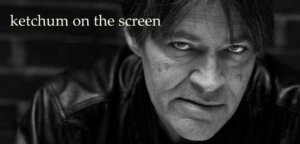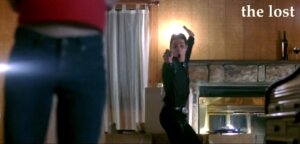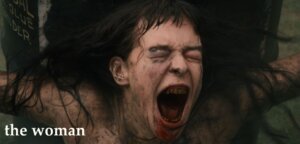
Born Dallas Mayr in Livingston, New Jersey, Jack Ketchum arrived on the horror scene with his debut novel Off Season in 1981. Off Season, an updating of the Sawney Beane story, drew the outrage of the Village Voice, which publicly scolded the novel’s publisher for printing violent pornography. Over the next 37 years, until his death in 2018, he would write over 20 novels and novellas, five of which have been adapted for the silver screen. A protégé of horror writer Robert Bloch, Ketchum’s novels eschewed the supernatural for unflinching and unsettling studies of man’s capacity for evil, often drawing on true crime for inspiration. While never failing to deliver the genre goods, weaving provocative scenarios pushing the boundaries of the macabre and twisted tales of sex, murder and torture for hardened extreme horror gore-hounds, Ketchum’s writing distinguishes itself from that of his Splatterpunk contemporaries for its sobriety, restraint and empathy which lend a tragic and mournful tone to the carnage.

THE LOST
dir. Chris Sivertson, 2006
United States. 119 min.
In English.
THURSDAY, 10/5 – 7:30 PM
FRIDAY, 10/20 – 7:30 PM
TUESDAY, 10/24 – 7:30 PM
Once upon a time, a boy named Ray Pye put crushed beer cans in his boots to make himself taller.
These words open both Jack Ketchum’s novel and Chris Sivertson’s cinematic adaptation of THE LOST, introducing us to Ray Pye, a teenage psychopath played with narcissistic glee and murderous male fragility by Marc Senter. Jack Ketchum drew his inspiration for the character of Ray Pye from the real life convicted serial killer Charles Schmid and Senter’s interpretation is a nightmare vision of suburban rot and everyday evil.
When 19-year-old Ray, with the help of his two lackey friends, murders two innocent campers for kicks, he becomes the target of Detective Charles Schilling. Unable to gather enough evidence to bring charges, four years pass, but Schilling won’t give up the chase. When Katherine Wallace, a seductive and mysterious new girl arrives in town, Ray’s reign of power is challenged and his wall of secrecy begins to crumble, leading to an explosive violent finale.
“The narrative moves along at a slow grind, taking its time developing each of the characters and their unsettling relationships. But it works and the threads all come together with a truly savage and unforgettable finale… THE LOST is a triumph of independent cinema – a bold novel turned equally bold film that will haunt you for a very long time.” – Dread Central
“Far more unsettlingly savage than many horror thrillers… undeniably fascinating and deadly serious from start to finish” – Variety

THE WOMAN
dir. Lucky McKee, 2011
United States. 101 min.
In English.
THURSDAY, 10/12 – 10 PM
FRIDAY, 10/20 – 10 PM
MONDAY, 10/23 – 10 PM
The last survivor of a cannibalistic cave-dwelling clan from Ketchum’s earlier work OFFSPRING is hunted and captured by a country lawyer in THE WOMAN, co-written by Ketchum with the film’s director Lucky McKee (MAY, ALL CHEERLEADERS DIE). Imprisoning the eponymous feral woman (Pollyanna Mcintosh, returning in a powerhouse performance) in the family’s cellar, the all-American dad (a loathsome Sean Bridges) commences a program of domestication, attempting to tame the ferocious female while turning his family into accomplices to her subjugation . THE WOMAN is an unbearably tense, gruesome, provocative and disturbing experience, whose scenes of cotidian domestic abuse will haunt and outrage the viewer as much as its scenes of savage animalistic violence.
“THE WOMAN picks right up where 2009’s OFFSPRING (also an adaptation of a Jack Ketchum book) left off. It’s a totally different beast though, and it is as much infused with Ketchum’s DNA as it is with McKee’s. That should come as no surprise at all since they collaborated on both the book and the screenplay. Ketchum’s predilection for tales of the inherent savagery in man, and McKee’s for the role women play in our patriarchal society, come to a head in the brutal and visceral masterpiece they created together.
What differentiates both adaptations, though, is that, unlike OFFSPRING, THE WOMAN plays with the notion of who the real monsters are. Now, “the savages are not the monsters” might seem like a tired cliché, and to a certain extent it is, but in the hands of McKee and Ketchum it becomes fresh, even poignant, and regains its status as an uncomfortable universal truth. This becomes even more true to the extent that THE WOMAN is not so much about the divide between civilization and savagery as it is about how men try to “civilize” women or to expel the savagery perceived within them.” -Simon Cogen, Horror HomeRoom
